Showing 1051–1060 of 1163 results
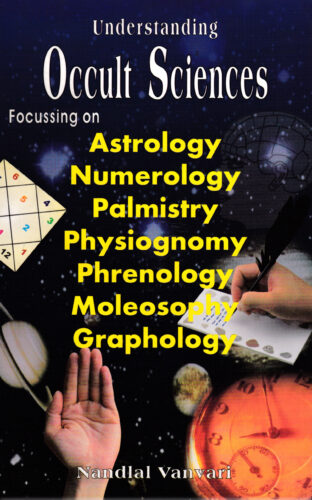
The book examines the occult sciences that deal with the birth- and name-related attributes of human beings, their bodily features and their style of writing astrology, numerology, palmistry, physiognomy, phrenology, moleosophy and graphology for deeper insights into personality and fate. With easy-to-understand examples, it reveals the way in which these sciences explain aspects of human character and mind.
The book attempts to examine those occult sciences that deal with the birth- and name-related attributes of human beings, their bodily features and their style of writing for deeper insights into personality and fate topics like astrology, numerology, palmistry, physiognomy, phrenology, moleosophy and graphology. In a simple language and with easy-to-understand examples and illustrations, Dr. Nandlal Vanvari reveals the way in which these sciences explain aspects of human character and mind by going beyond the environmental conditioning of man and his trait of reducing everything to automatic reflex. Keeping the modern scientific perspective in mind throughout, he delves into horoscopes and effects of the planets and constellations, the significance of numbers in numerology and their association with planets, the palm lines, significance of moles located in different parts of the body and so on. The work will be useful for those associated with the sciences of the mind as well as general readers interested in occult sciences.
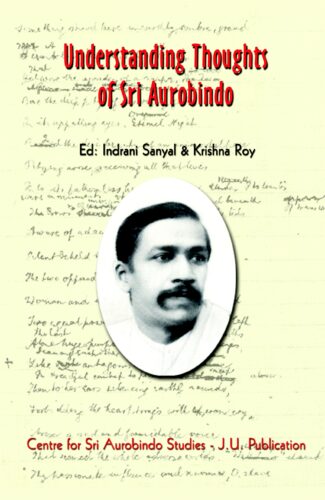
This volume explores various dimensions of thoughts of Sri Aurobindo (1872-1950), respected as a patriot, nationalist, social reformer, educationist, historian, poet, visionary, Yoga and a philosopher. He interprets Indian philosophical and spiritual tradition dating back to the Vedas and the Upanishads and emphasises National Education, in cultural and spiritual sense.
Understanding Thoughts of Sri Aurobindo explores various dimensions of thoughts of Sri Aurobindo (18721950) who is being respected as a patriot, nationalist, social reformer, educationist, historian, poet, visionary, Yogi and philosopher. Sri Aurobindo is the interpreter of the Indian philosophical and spiritual tradition and one of the ablest exponents of this tradition dating back to the Vedas and the Upanishads. Sri Aurobindo’s emphasis on National Education, more in the cultural and spiritual sense, may provide an answer to the intellectual, moral and spiritual crisis. This volume focuses upon the holistic, interdisciplinary approach to the thoughts of Sri Aurobindo, whose views and actions have left a lasting influence on the development of modern India. Referring to his three major works, The Life Divine, The Synthesis of Yoga and Savitri, as well as over thirty other works where he expounded his thoughts, the well-researched writings reveal the special features of his vision. They focus on his integral approach to the concept of evolution, his notion of integral philosophy and his concept of integral Yoga. The essays include an in-depth study of Sri Aurobindo’s concept of man, of state, and views regarding uplift of humanity. This book contains scholarly articles that seek to unravel the many dimensions of his thoughts. Students, researchers and persons interested in Sri Aurobindo Studies will be immensely benefited from this volume.
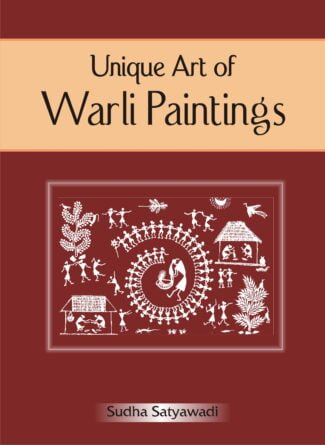
This book is a modest compilation of Warli art Þ of the Warli tribes of Maharashtra Þ that comes through an unbroken tradition of thousands of years. Warli art is simple yet rich. The paintings are expressive with profound truths which are brought forth in a most elementary format.
Warli painting has its own place in adivasi art of India. It takes its name from the Warli tribes of Maharashtra. It seems their roots are in the rock shelters of ancestors found in Bhimbhedka and Raisen in Madhya Pradesh.
Warli paintings are pointers they fulfil a purpose. Their presence in the hut is auspicious and is said to promote fertility, avert disease, propitiate the dead, etc. They show rituals at birth, marriage, a life full of dance and music, livelihood, connectivity with death and life after death. Artists express a kind of fulfilment they experience that is in harmony with nature and their gods and goddesses.
Warli art is simple yet rich. The material used for painting is simple, themes contained therein, philosophy of existence and even life beyond death, all are brought forth in a most elementary format. Many specimens of Warli art are contained in this book. The paintings are expressive with profound truths and project all that one needs to know how to live a happy life. Austere brown wall surface of huts displaying tribal designs with typical rock art motifs make Warli art different from other tribal paintings of India.
This book is a modest compilation of Warli art that comes through an unbroken tradition of thousands of years. But Warli art traditions are gradually vanishing. Money elsewhere is pulling artists away from their traditional occupation. Something has to be done by society to create conditions for them, to not get weaned away by lure of commercial avenues. This book is a small effort to save this art from falling off from the pathway of time continuum.

This work is an attempt to reveal the fundamentals of Carvaka philosophy the materialistic system of thought propounded by the ancient philosophers of India and its epistemological, metaphysical and ethical concerns. The Carvaka system is compared and contrasted with other systems of ancient philosophy.
Carvaka is the materialistic system of thought propounded by the ancient philosophers of India. The Carvaka system of philosophy has been much criticized and even ridiculed since the ancient times as the Carvakas have been dubbed as atheists and hedonists. This work is an attempt to reveal the fundamentals of Carvaka philosophy, and its epistemological, metaphysical and ethical concerns. Beginning with the origin and development of Indian materialism, it addresses the controversial and disputed issues regarding Carvaka philosophy on the basis of a profound study of the original sources on the subject and by referring to modern researches on it. It highlights the contributions of the Carvakas in the furtherance of moral and philosophical thoughts and their uniqueness in many respects, such as the Carvaka School being the only one among ancient Indian philosophical schools to accept only one pramana — perception. The Carvaka system is compared and contrasted with other systems of ancient Indian philosophy for the purpose. The book is praiseworthy in its attempt to present its findings in a logical manner.
The book will interest scholars and students of ancient Indian philosophy as well as general readers who are keen to understand ancient Indian philosophy.
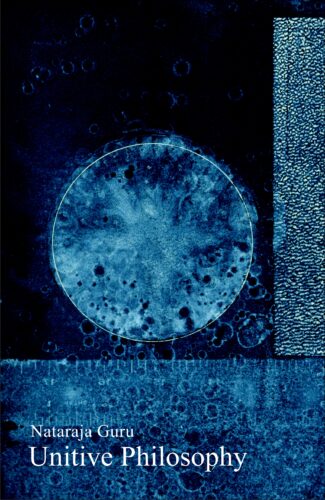
It is a uniquely rewarding book that will open up vast uncharted regions for exploration, especially for the serious thinker unsatisfied by the modern pop philosophy. A meaningful philosophy must have an absolute idea implicit in it and this book investigates several prominent strains of philosophy, to identify the absolute element.
Nataraja Guru single-handedly revolutionized philosophical thought in the mid-twentieth century. At a time when science had unwittingly followed Marxism into a materialist desert, he never relinquished his insight into what had been omitted. Now that scientists and philosophers everywhere are pausing in perplexity, having bumped up against the limits of their partial outlook, the Gurus works offer to reintroduce the wisdom that can bring the desert back to life. Stung by the horrors of the Inquisition, western science turned its back on metaphysics for hundreds of years. The extended effort to include as much as possible of the universe under the aegis of physical reality was an interesting experiment, but it has about played itself out. Ideas, memories, emotions and time, among other major categories, are metaphysical entities that have transcended every effort at being reduced to material existence. Matter itself is seen to be brimming with energy as soon as you look beneath the surface. A counterbalancing backlash has occurred recently in which religious and other metaphysical ideas, no matter how divorced from reality, are being embraced as a welcome escape from uncompromising materialism. For a sensible philosophy free of prejudice, which can open the road to further progress in human thought, a balance must be struck between physics and metaphysics. Each must support and verify the other. Nataraja Guru clearly establishes the basis for such an advance in this work, presenting an overarching scheme to integrate all aspects of reality under one roof. Any meaningful philosophy must have some version of an absolute idea or value implicit in it. After presenting his own absolute system Nataraja Guru investigates several prominent strains of philosophy, including the rationalist and the materialist, to identify the absolute element hidden within each of them. Totalitarianism and absolutism are shown to be totally antithetical, the former being highly exclusionary while the latter embraces every possibility. Dialectic thinking is at the heart of the Gurus philosophy, leading to an absolute vision that incorporates all parts within the whole. For the serious thinker unsatisfied by modern pop philosophy, Unitive Philosophy is a uniquely rewarding book that will open up vast uncharted regions for exploration.

The book presents the notion of unity in diversity in the context of globalization and multiculturalism. The concepts of unity and diversity have been contested in classical and modern theories. These theories give rise to the concept of diversity but jointly somehow they emerge as unity in diversity.
The book presents the notion of unity in diversity in the context of globalization and multiculturalism. Philosophically speaking, the concepts of unity and diversity have been contested in classical and modern theories; for instance, Plato’s idea of harmony and goodness, Aristotle’s phronesis or practical wisdom (teleology), Kant’s categorical imperative (deontology), and Mill’s utilitarianism (consequentialism) on the one hand and purusarthas divided into abhyudaya and nihsreyas, etc. on the other. These theories give rise to the concept of diversity but jointly somehow they emerge as unity in diversity.
In the era of globalization and multiculturalism, teleology, deontology, consequentialism and so on have been described, critiqued and even appreciated and appropriated from pluralistic perspective. With globalization and multiculturalism, human life is affected not only insofar as market is concerned, but also the ethnical, cultural and linguistic identities are equally affected. However, unlike globalization, multiculturalism endorses the role of the State in protecting and safeguarding the rights of diverse cultural groups, values and practices, marriage and settlements, property and inheritance, etc. so that members of each cultural community should become the valid participants in the civil and democratic life in the globalized world.
The perspectives of, and the conflict between individual needs and rights, and group needs and rights, have been conceptualized under liberalism and communitarianism. It is proposed to be achieved by developing cultural transformations in the era of globalization, thus creating reasonable exclusion on broader values. The effort is to allow these values to inform and reinforce each other for the possible foundations of multiculturalism, specially cosmopolitanism in the globalized world.
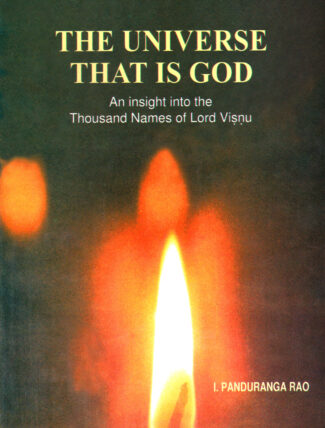
Studying the meaning and significance of Sri Visnu Sahasranama, the book discuss the metaphysical nuances of each name, related concepts/terms and the origin of the sacred hymn. It shows how the text presents a picturesque account of the Supreme Reality.
The book offers an erudite commentary on the sacred text of Shri Vishnu Sahasranama, one of the most important hymns in the great corpse of Indian literature. Dr. Panduranga Rao, a scholar of repute, here makes a detailed study of the meaning and significance of the hymn a garland of thousand names of the Lord of the universe glorifying his qualities in an attempt to qualify the unqualified. Devoting a separate chapter for the analysis of each of the 107 verses of the stotra, he brings out the metaphysical nuances of each name with references from various sources and mentions the texts where the names occur. He explains related concepts and terms in an effort to present a wider understanding of the subject. He also studies the context in which the sacred hymn originated. The scholarly commentary reveals how the sacred text presents a picturesque account of the Supreme reality, Highest existence and Absolute bliss through graphic language and by adopting a photographic style of its own. The work, with a foreword by Dr. Karan Singh, will be extremely useful to all scholars of Indian tradition and literature as well as others who are interested in the recitation and understanding of Shri Vishnu Sahasranama.
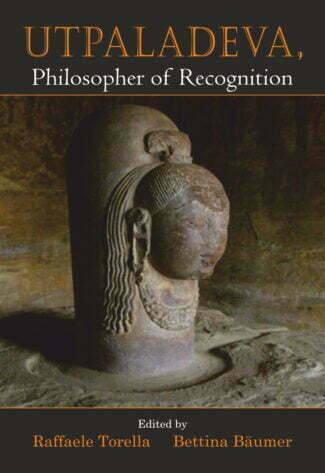
This volume presents the multifarious aspects of Utpaladeva, not only an outstanding metaphysician and epistemologist, engaged in a strenuous critical dialogue above all with the Buddhist logicians, but also one of the most extraordinary mystical poets of India. For the first time his contribution to poetics and aesthetics has been duly highlighted.
The book, which partly derives from the papers offered at the first International Seminar on Utpaladeva (IIAS, Shimla 2013), is the first ever attempt at presenting a comprehensive portrait of one of the most important philosophers of premodern India, so far mainly taken into account as a mere predecessor of the great Abhinavagupta. Recent studies by R. Torella and others have shown the central importance of Utpaladeva in the elaboration of the Pratyabhijna philosophy, and reduced the role of Abhinavagupta to that of his brilliant commentator.
The contributors to the present volume have shown the multifarious aspects of Utpaladeva, not only an outstanding metaphysician and epistemologist, engaged in a strenuous critical dialogue above all with the Buddhist logicians, but also one of the most extraordinary mystical poets of India. For the first time his contribution to poetics and aesthetics has been duly highlighted.
The book contains two appendices with the critical edition and translation by R. Torella of fragments from Utpaladevas long commentary (Vivriti) on his Ishvarapratyabhijna-karika and Vritti, one of the most important works of Indian philosophy as a whole, so far deemed to be totally lost.
This book should generate great interest among scholars of Sanskrit and philosophy for its uniqueness and should serve the curiosity of each and every scholarly reader of Kashmir Shaivism.

An anthology of over 90 articles penned by the renowned Sanskritists and Indologists in order to felicitate Prof. Vachaspati Upadhyaya covers different domains of Indian intellectual tradition, emphasizing upon the dialectical depth and thematic width of Indian philosophy, religions and culture enshrined in Sanskrit sources.
Vacaspativaibhavam is a modest tribute to the dynamic persona of Professor Vachaspati Upadhyaya whose chequered career spans more than four decades. In this volume, an earnest endeavour is made to collect and recollect his significant contribution to the academic world, both as a scholar as well as an administrator.
The first part of this volume carries benign blessings of saints and scholars for the unbound showering of divine grace upon Professor Upadhyaya. Many messages by the dignitaries and copious compliments from well-wishers and friends of Professor Upadhyaya convey his unmitigated commitment to the core human values cherished in his heart.
The second section of the volume comprises rich reminiscences penned by a vast majority of his colleagues and students from all over the country. These memoirs, in the form of personal reflections, are richly expressed through the medium of poetry and prose, and reveal the various aspects of the multifaceted personality of Professor Vachaspati Upadhyaya.
More than ninety research papers included in the principal part of the volume are not limited to the narrow compartmentalization of a particular subject but cover different domains of Indian intellectual tradition. Authored by a galaxy of scholars, Indian and foreign, these articles not only highlight the new ventures in cross-disciplinary studies, but also emphasize their basic concern with contemporary challenges facing humanity. The readers will relish that contributors to the volume have effectively reflected upon the dialectical depth and thematic width of Indian philosophy, religion and culture enshrined in Sanskrit sources.
In fine, the volume in hand promises to provide meaningful material for thought in the fields of Sanskrit and Indological Studies.
Vada, meaning debates, dialogues, discussions, was the quintessential of Indian spirit, enabling and promoting the growth of different philosophical and knowledge systems of India. It percolated deep into our mindset and enriched the moral, ethical, religious and sociocultural edifice of anything that was essentially Indian in nature. As continuation of Anvikshiki from the bc era, vada helped thrive Indian traditional knowledge systems. It subsists on diversity and its tradition envisages pluralism.
Most of our Sanskrit works, covering a wide gamut of knowledge systems, are structured in the techniques of debate. This reality applies not only to the philosophical writings, but to Indian medical systems (Ayurveda), Arthashastra of Kautilya and Kamasutra of Vatsyayana as well. Even great epics like Ramayana and Mahabharata are no exceptions.
Vada culture involved verbal duals, attacks and even violence of speech, and all major religious systems — old or modern — were parties to it. This book also elucidates how vata was vital and critical for the growth of our socio-political fabrics. It shows how some of the major conflicts in philosophical systems were centred around karma, jnana, choice between violence and non-violence, pravritti and nivritti. It also presents the manifestations of vada on a vast canvas during the nineteenth and twentieth centuries. Modern spiritual and religious gurus like Ramana Maharshi, J. Krishnamurti and Vinoba Bhave were men of dialogues. Our scholars have applied the varied techniques of vada against the philosophical and scientific systems of the West to prove them correct.
This collector’s issue should enthrall a wide audience of philosophers, scholars and believers in Indian knowledge systems.
| There are no products |